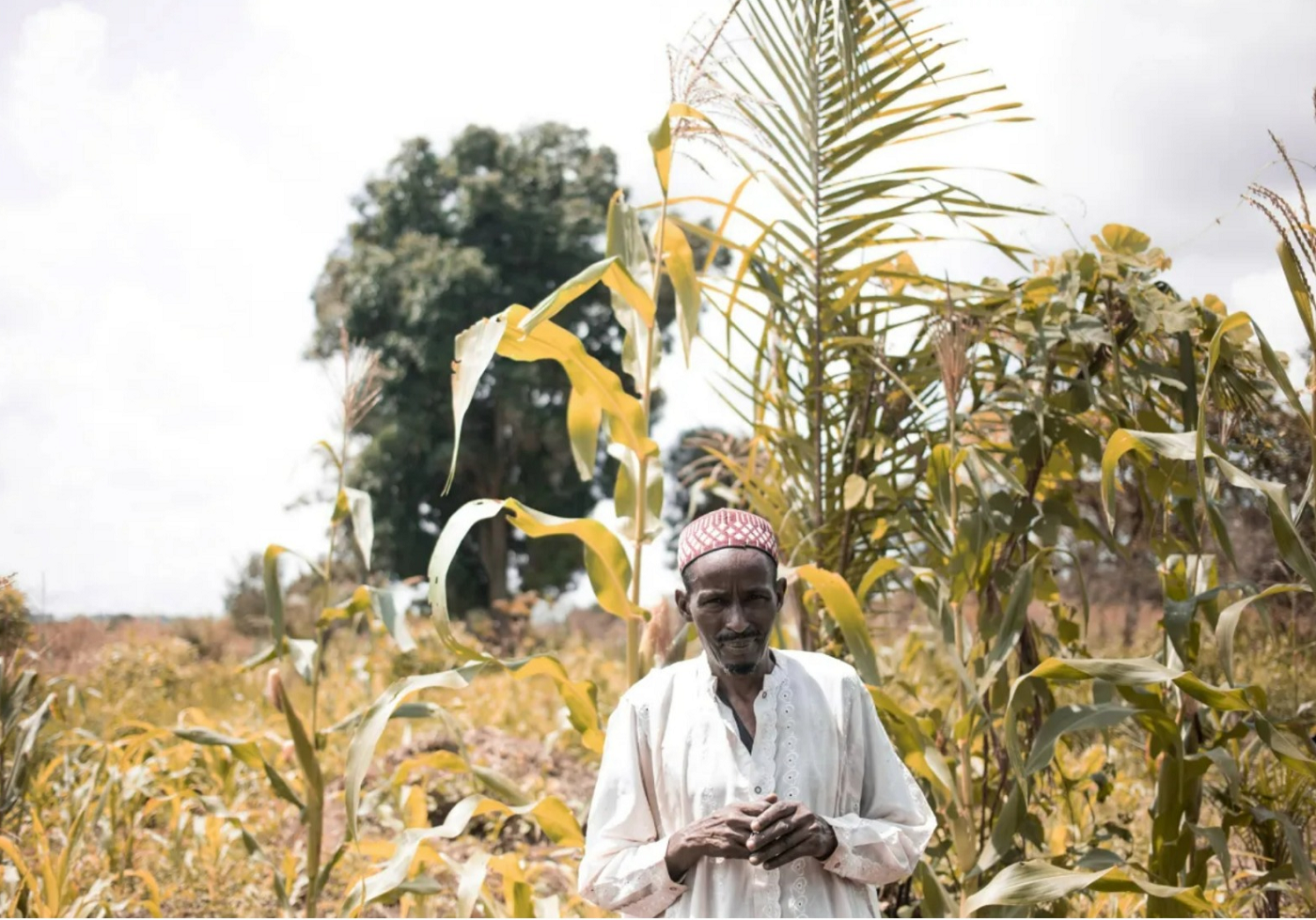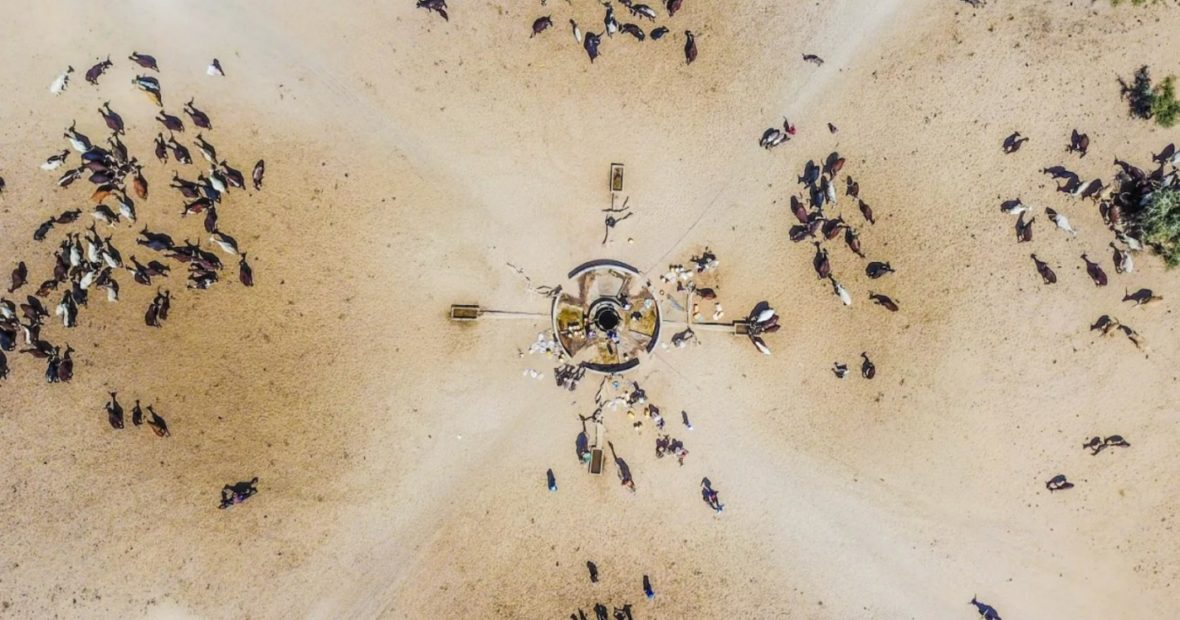Climate change is an existential threat to humanity. Warming of the atmosphere, oceans and land – driven by human activity – is causing climate variations and extremes all over the world, with over three billion people living in places that are highly vulnerable to climate change (IPCC, 2023). Action taken to date by the international community has been insufficient to prevent or reverse these trends.
The negative effects of climate change are being felt in some of the most extreme ways by people living in places affected by armed conflict and other violence, who are ill-equipped to cope with and adapt to a changing climate and receive inadequate support to that end (ICRC, 2020 and 2023). Over the last few years, there has been increased recognition of the urgent need to strengthen climate action in places enduring armed conflict and other fragile settings, as reflected in the COP28 Declaration on Climate, Relief, Recovery and Peace. Commitments must urgently be put into practice, as strong climate action in places affected by armed conflict, and the finance to support it, is required to reduce humanitarian needs, preserve development gains and avoid systemic breakdowns and lasting fragility.
At COP29, the International Committee of the Red Cross (ICRC) urges parties to the United Nations Framework Convention on Climate Change (UNFCCC) and the governing bodies of the Conference of Parties (COP) to make three commitments to ensure that people enduring armed conflict are not left behind:
- First, recommit to urgent and ambitious political action to reduce emissions and keep warming within a liveable range to avoid the worst consequences of climate change on people.
- Second, officially acknowledge conflict-affected countries’ high vulnerability to climate risks owing to their limited adaptive capacity.
- Third, live up to international commitments to bolster climate action in countries that are particularly vulnerable to climate change by ensuring climate action is strengthened and supported by fit-for-purpose, accessible finance in countries enduring armed conflict and violence.
1. Recommit to urgent and ambitious political action to reduce emissions and keep warming within a liveable range to avoid the worst consequences of climate change on people.
Negotiations on how to limit the worst consequences of climate change have been taking place for decades. In 2015, signatories of the Paris Agreement agreed to limit warming to “well below” 2 degrees Celsius above pre-industrial levels and aim for a maximum increase of 1.5 degrees. Yet, current government pledges put the world on a likely path to exceed 1.5 degrees in the near future (WMO, 2023; UNEP, 2022).
In all scenarios, some level of warming will continue because of past emissions, which will compound and intensify climate extremes and exacerbate humanitarian crises. Without mitigation, the need for climate adaptation will continue to increase, in some cases requiring large-scale social, cultural, political and economic transformations. In the absence of effective mitigation and beyond the limits of adaptation, climate change will continue to negatively affect people’s lives, homes, infrastructure, assets and livelihoods. People will therefore need support in averting, minimizing and addressing climate-induced losses and damages and in limiting biodiversity loss and environmental degradation, so that the most vulnerable communities, including those affected by conflict and violence, do not fall even further behind.
We urge parties to the UNFCCC to:
- Accelerate and increase their ambitions to cut greenhouse gas emissions, adapt to heightened risks and address losses and damages.
2. Acknowledge conflict-affected countries’ high vulnerability to climate risks owing to their limited adaptive capacity in official COP29 decisions.
The international community has committed to provide support to countries that are highly vulnerable to climate change. More than half of the countries considered most vulnerable and least ready to adapt to climate change are countries enduring armed conflict. This is not because climate change directly causes conflict. Rather, conflict increases the fragility of institutions, essential services, infrastructure, governance and other capacities that are critical to help people cope with and adapt to a changing climate.
The COP28 Declaration on Climate, Relief, Recovery and Peace was an important milestone in that it explicitly recognized that more must be done to address the high vulnerability of countries enduring conflict. This recognition should be taken further by introducing related language into formal COP outcome documents. Doing so would not mean creating a new category: most countries enduring conflict are also among the world’s least developed countries (ND-GAIN, 2023), a category already identified by the UNFCCC as requiring particular support to adapt to the adverse effects of climate change. Formal recognition of the challenges faced by countries enduring armed conflict would allow for a greater focus on pathways to address their specific needs and ensure that sufficient, urgent climate action is taken in such places.
Furthermore, to ensure that communities are sufficiently supported to adapt to a changing climate, it is also important to acknowledge in formal COP outcome documents that conflict and fragility are drivers of individual and community-wide vulnerability. Doing so would support efforts to reach and support communities living in unstable environments.
We urge parties to the UNFCCC to:
- Acknowledge and draw attention to the high vulnerability to climate risks of countries and communities enduring armed conflict in official COP documents, including the new collective quantified goal on climate finance, as this is essential to ensure adequate climate action in these settings.
3. Accelerate efforts to bolster climate action in countries that are particularly vulnerable to climate change by ensuring such action is strengthened and supported by fit-for-purpose, accessible finance in countries enduring armed conflict and violence.
The international community has committed to helping people adapt to a changing climate in countries enduring conflict and fragility. Positive steps have been taken in this regard, but progress remains too slow. Climate action and finance continue to be weak in highly unstable settings because of the challenges associated with long-term programming in these environments. Conflict-affected areas within a country – particularly when such areas are not under state control – are often excluded from climate finance to mitigate risks, thus excluding millions of people from receiving support. Meanwhile, only a fraction of international climate finance is committed to local action (Cao et al., 2021).
To close this gap, efforts to revisit how climate action is implemented in places affected by conflict need to be accelerated and strengthened. Criteria for accessing funding – particularly for adaptation and loss and damage – and assessing risks must be tailored to the specific challenges of places that are extremely fragile (ICRC, 2022).
We urge parties to the UNFCCC to:
- Scale up efforts to strengthen climate action for countries, people and communities affected by armed conflict by improving knowledge and practice on how to prepare for, respond to and build resilience against climate shocks in these settings.
- Review existing mechanisms for accessing, distributing and absorbing finance for climate action to ensure they do not exclude millions of people from receiving much-needed support. This requires reassessing risk appetites and providing flexible finance at appropriate scale.




Comments